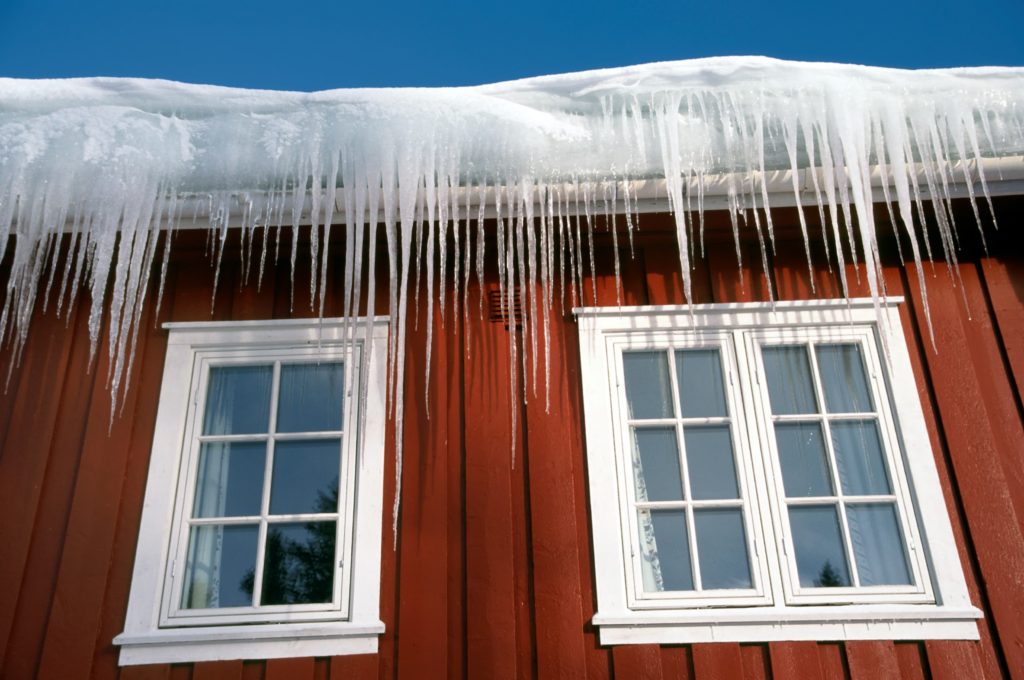Icicles can be beautiful to those who appreciate winter landscapes. They also can be dangerous and destructive. So, the idea is to keep and admire them from a safe distance but keep them off your roof. Otherwise, an ice dam can form.
An ice dam is a ridge of ice that forms at the edge of a roof and prevents melting snow (water) from draining off the roof. The water that backs up behind the dam can leak into a home and cause damage to walls, ceilings, insulation, and other areas.
Depending on the shape of your roof and the extent of the so-called dam, ice also can rip up loose shingles. Then, when all that snow and ice melts, it’s much easier for water to work its way indoors.
Here are some tips on how to prevent the problem before you have one.

Snow removal:
After a big snow fall, it’s best to remove snow from the first foot and a half of your roof. This allows melting snow to run down the drain. A good bristle broom or roof rake can easily pull the snow down, but if you are unable to reach the roof, don’t just leave the snow there – call a professional.
Keep gutters clean:
Leaf or tree debris also can contribute to water flowing down and off the roof. Before the next storm arrives, have your gutters and downspouts thoroughly cleaned.
Insulate:
Consider adding an extra layer of attic insulation to help keep warm air out of the attic, which will continue to flow upwards until it starts warming the underside of the roof. That, in turn, further enables melting snow and ice to seep in.
Dealing with an ice dam:
If you already have an ice dam, quickly remove as much snow from the roof as possible to prevent the dam from expanding. Calcium chloride ice melter also will contribute to reducing the amount of rooftop snow and ice. Just don’t use rock salt as it will damage paint, metals, and plants beneath the eave.
Sounds like a lot of work, right? Well, it doesn’t have to be provided you follow two basic home maintenance steps:
- Clean or have your gutters and down spouts cleaned once a year to remove all leaves and other potential obstructions; or, have your gutters covered with gutter guards.
- Ensure that your attic insulation is at least 6” deep, in good condition, and covers the entire space.
If water starts leaking from your attic into your living spaces, it may not be a roof leak causing the problem – it could be from a cracked or leaking water pipe in your attic. If you’re not sure where it’s coming from, contact Messmer Mechanical for our highly accurate and efficient leak detection and repair service – because it’s always better to be safe than sorry.




